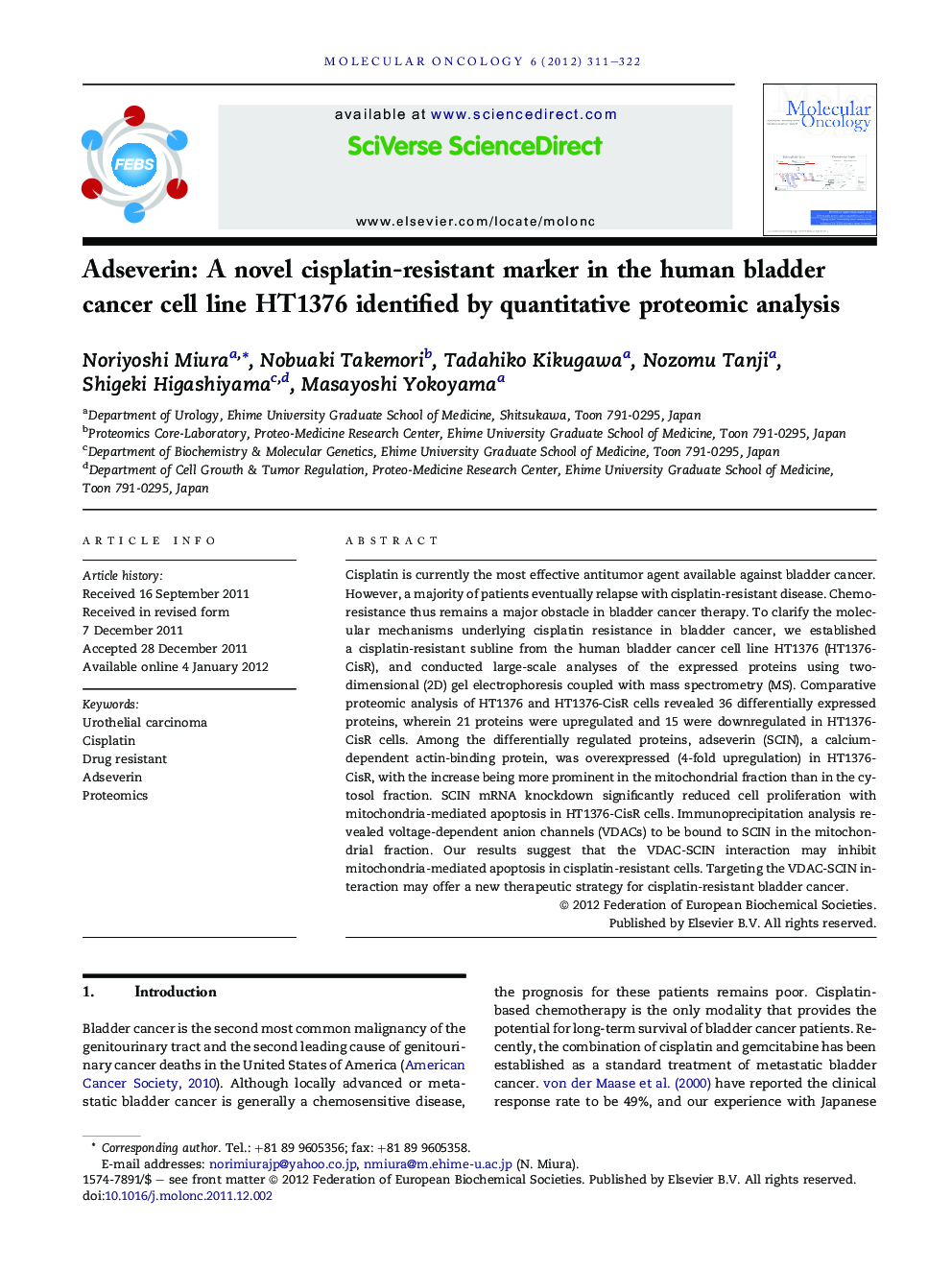| Article ID | Journal | Published Year | Pages | File Type |
|---|---|---|---|---|
| 2145795 | Molecular Oncology | 2012 | 12 Pages |
Cisplatin is currently the most effective antitumor agent available against bladder cancer. However, a majority of patients eventually relapse with cisplatin-resistant disease. Chemoresistance thus remains a major obstacle in bladder cancer therapy. To clarify the molecular mechanisms underlying cisplatin resistance in bladder cancer, we established a cisplatin-resistant subline from the human bladder cancer cell line HT1376 (HT1376-CisR), and conducted large-scale analyses of the expressed proteins using two-dimensional (2D) gel electrophoresis coupled with mass spectrometry (MS). Comparative proteomic analysis of HT1376 and HT1376-CisR cells revealed 36 differentially expressed proteins, wherein 21 proteins were upregulated and 15 were downregulated in HT1376-CisR cells. Among the differentially regulated proteins, adseverin (SCIN), a calcium-dependent actin-binding protein, was overexpressed (4-fold upregulation) in HT1376-CisR, with the increase being more prominent in the mitochondrial fraction than in the cytosol fraction. SCIN mRNA knockdown significantly reduced cell proliferation with mitochondria-mediated apoptosis in HT1376-CisR cells. Immunoprecipitation analysis revealed voltage-dependent anion channels (VDACs) to be bound to SCIN in the mitochondrial fraction. Our results suggest that the VDAC-SCIN interaction may inhibit mitochondria-mediated apoptosis in cisplatin-resistant cells. Targeting the VDAC-SCIN interaction may offer a new therapeutic strategy for cisplatin-resistant bladder cancer.
► We established a cisplatin-resistant subline (HT1376-CisR). ► We used quantitative proteomic analysis to compare between HT1376-CisR and HT1376. ► Adseverin, an actin-binding protein, was overexpressed in HT1376-CisR. ► It affected behaviors of voltage-dependent anion channel, interfering with apoptosis. ► Targeting the VDAC-adseverin interaction may offer a new therapeutic strategy.
